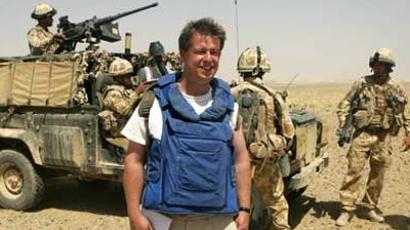Computer predicted Arab Spring when presidential advisers failed
With so much disorder in the world today, Kalev Leetaru thought he’d take a stab and trying to see where it’s all coming from.
Using a process called “culturnomics,” Leetraus is able to scour over throngs of news sources to try and find trends leading up to some of the biggest stories of today. But how accurate is it?“I took 100 million news articles,” Leetaru told RT, “30 years of media from across the entire planet, and I took that an extracted 10 billion people, places and things connected by about 100 trillion connections. This is too big for any computer today, but what I did then was run tools that look through that and try to see, ‘What are the interesting patterns that you can get from the news when you do this?’”Leetaru’s results are amazing to say the least. He analyzed stories that looked towards Egypt and was able to see that there was “accelerating negativity” directed towards the region in the time leading up to the revolts. Leetaru says he looks at the tone of the stories month by month and charts them to see how trends progress.“There is a lot of work that says if you try to use news or social media and you measure the tone, sort of the global pulse,” said Leetraus, than you have a very good chance at forecasting economic events.Leetaru has used news articles going back decades to look at Egypt and other cases, but he says that with the rate of social media today, news churns out by the millisecond. He says there will soon be as many words posted to Twitter as there are in every book of the last 60 years. And while freedom of the press isn’t a guarantee in all parts of the word, Leetaru said it is becoming harder and harder for any single entity to control that. “Within Egypt, the Egyptian press was pretty muted about the protests in the early days,” said Leetaru. “So by looking at the entire world, you’re getting around that.” He told RT that while you have a risk of skewed analysis when looking at news reports on a small scale, much of that can be eliminated by aggregating everything from all corners of the globe.In another instance, Leetaru used culturnomics to look into the raid on Osama bin Laden’s Pakistan compound. “Take all that news coverage, take every city reference in that news coverage, you make it into a map and you end up with a map where all roads lead to a 200 kilometer radius of where he was found,” Leetaru told RT.Can the academic from the University of Illinois use these predictions to pinpoint other revolutions before they actually begin? He says that’s the next step. He wants to create a public database of culturnomics where people can see live updates of what’s changing in the world. “We're just starting to explore this data and I think there is a whole world of exciting new findings to be found,” said Leetaru.













